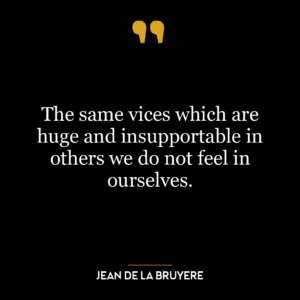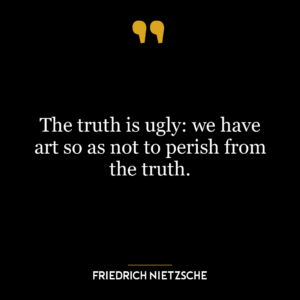This quote emphasizes the profound impact of our moral choices on our outer appearance. Virtue, or moral goodness, may not necessarily enhance one’s physical attractiveness, but vice, or immoral behavior, will certainly mar it. The ugliness here is metaphorical, referring to the negative perception that others may have of us when we engage in immoral actions.
The quote suggests that our character, the sum of our virtues and vices, is reflected in our countenance. This doesn’t mean that immoral people are physically ugly, but rather that their actions and behaviors can make them seem unattractive to others. On the flip side, virtuous actions might not make someone physically attractive, but they do make a person attractive in a deeper, more meaningful sense.
In today’s world, this idea is particularly relevant in the realm of social media, where we often present carefully curated versions of our lives. Despite the filters and edits, our true character eventually shines through our actions and words. Engaging in virtue—like honesty, kindness, and humility—can enhance our online persona, while vice—like dishonesty, cruelty, or arrogance—can tarnish it.
In terms of personal development, this quote can serve as a reminder that cultivating moral virtues is more important than obsessing over physical appearance. It encourages us to focus on improving our character and making ethical choices. After all, real beauty comes from within, and people are more likely to remember how you behaved than how you looked.












